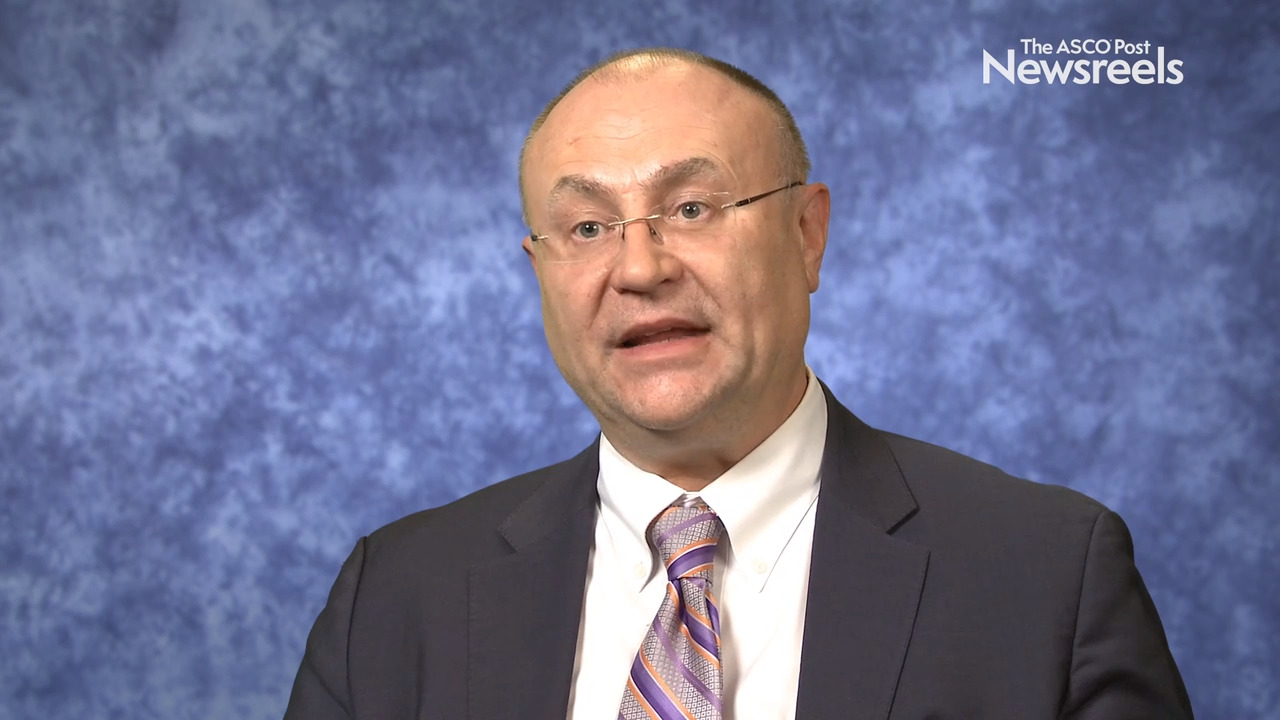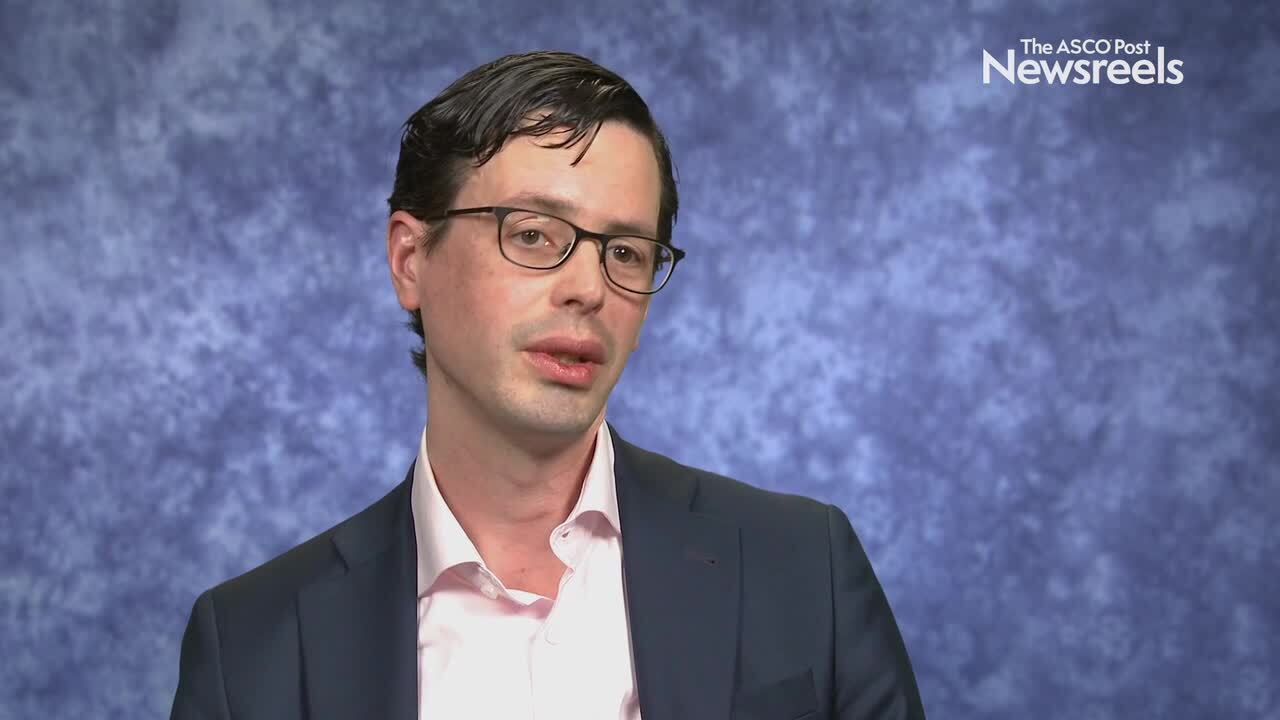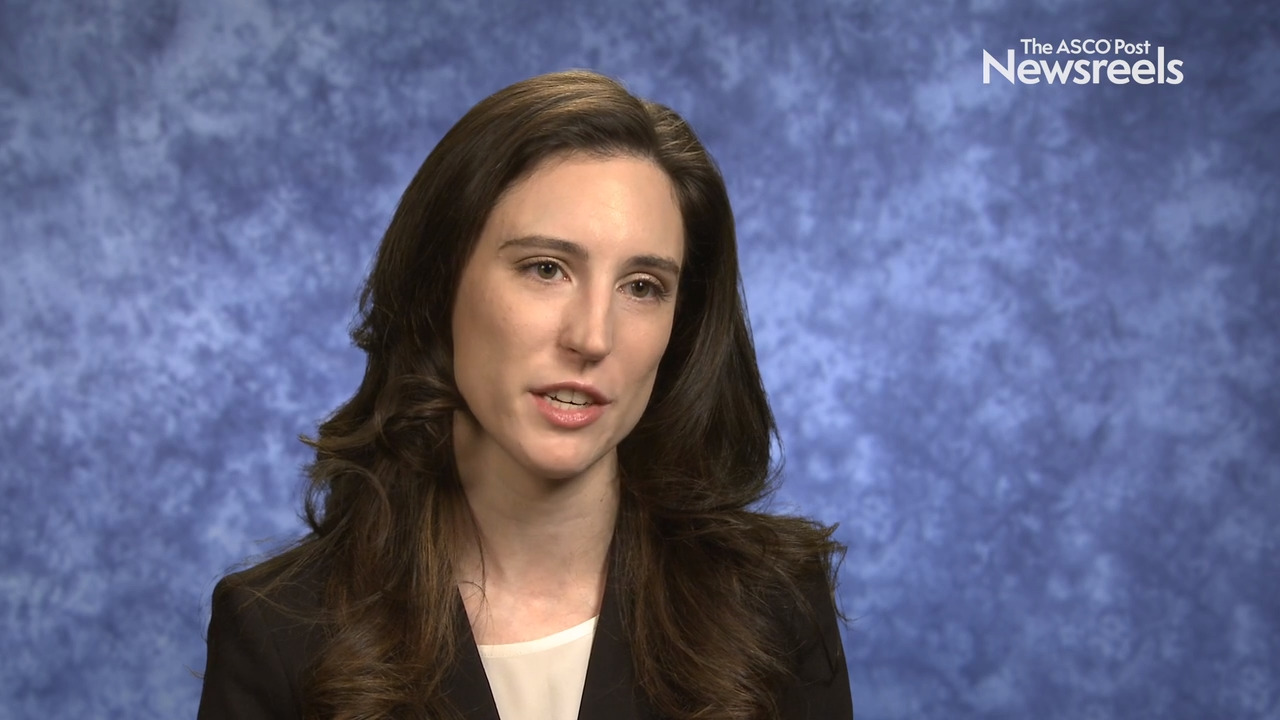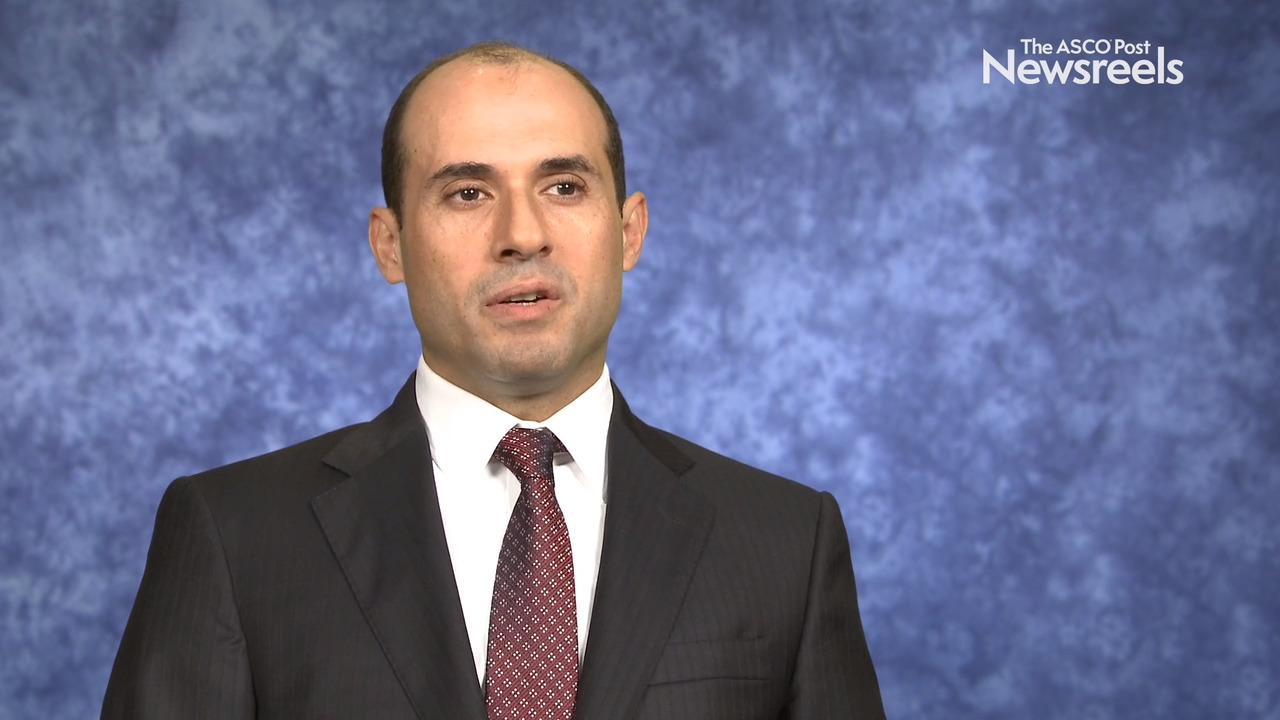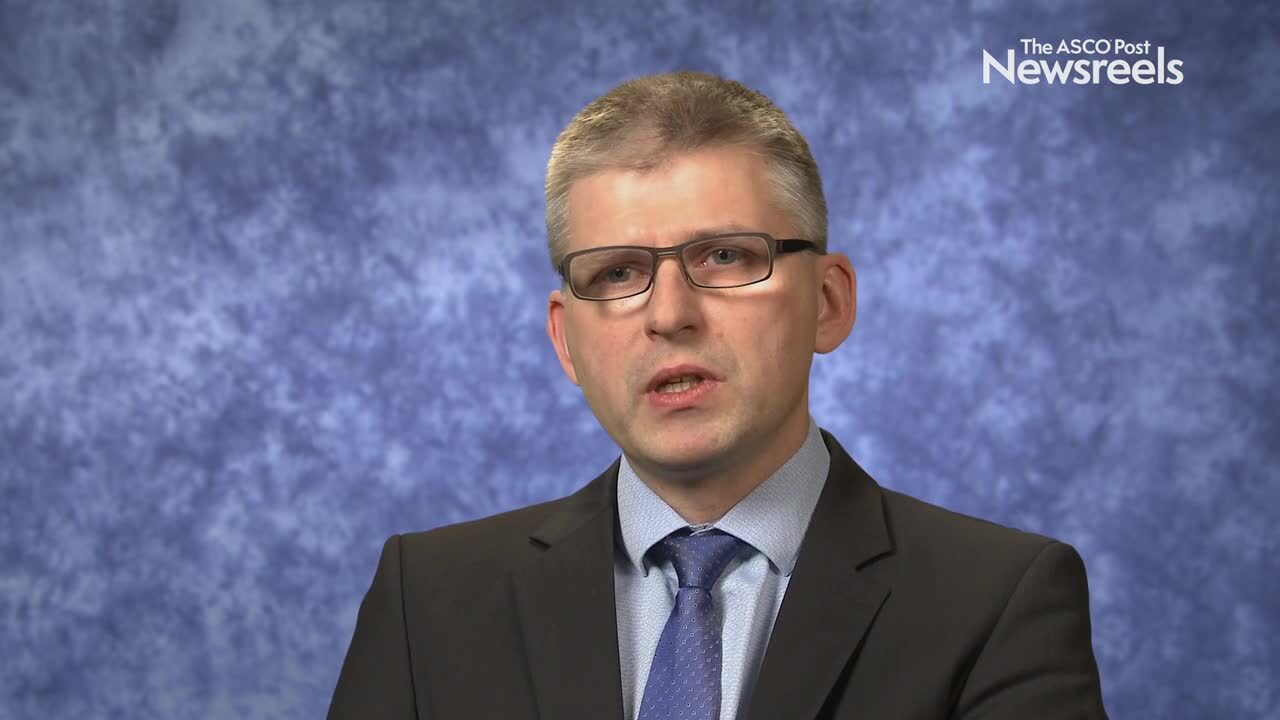Jonathan R. Strosberg, MD, on Neuroendocrine Tumors: Results From the KEYNOTE-158 Trial on PD-1 Inhibition
2019 Gastrointestinal Cancers Symposium
Jonathan R. Strosberg, MD, of the Moffitt Cancer Center, discusses phase II study findings on pembrolizumab as a treatment for advanced neuroendocrine tumors (Abstract 190).
Heinz-Josef Lenz, MD, discusses molecular profiling and response to chemotherapy in the COMPASS study, which was designed to evaluate the feasibility of using genomic sequencing in pancreatic cancer care (Abstract 188).
Pieter Tanis, MD, PhD, of Amsterdam University Medical Centers, discusses study findings on adjuvant hyperthermic intraperitoneal chemotherapy (HIPEC) in patients with colon cancer who are at high risk of peritoneal metastases (Abstract 482).
Francesca Battaglin, MD, of the University of Southern California Norris Comprehensive Cancer Center, discusses phase III study data on genetic variants used to predict the efficacy of cetuximab in patients with metastatic colorectal cancer (Abstract 564).
Ahmed Omar Kaseb, MD, of The University of Texas MD Anderson Cancer Center, discusses phase II study findings on nivolumab alone vs nivolumab plus ipilimumab in patients with resectable hepatocellular carcinoma (Abstract 185).
Carl C. Schimanski, MD, PhD, of the Municipal Hospital Darmstadt, discusses phase II study findings on adjuvant immunotherapy with tecemotide after colorectal cancer liver metastasectomy (Abstract 480).
